It can be hard to keep up with the dietary needs of different animals in the garden. For rabbits, it can be particularly tricky to know if they should be eating basil or not. You may have heard that rabbits are herbivores, but what exactly does this mean for their diet? This blog post will explore whether or not basil is part of the diet of rabbits and how you can best care for your furry friend.
What Do Rabbits Generally Eat?
Rabbits are herbivores, meaning they eat only plants. They mostly consume hay, fresh vegetables, and grasses.
Vitamin-rich vegetables like broccoli, kale, celery leaves, and carrots can be added to a rabbit’s diet occasionally. Fresh fruit can also be given on occasion but in moderation, as it is high in sugar content which can lead to health issues.
Pellets made specifically for rabbits should not make up more than 10 percent of a rabbit’s diet, as the high protein and calcium content can be harmful. Other foods to avoid giving rabbits include iceberg lettuce (which is lacking in nutrients) and rhubarb (which is toxic).
It is important to remember that a balanced diet should consist of mostly hay and fresh vegetables. Feeding your rabbit a variety of healthy foods will help ensure they are getting all the necessary nutrition they need for optimal health. Fresh water should also be available at all times.
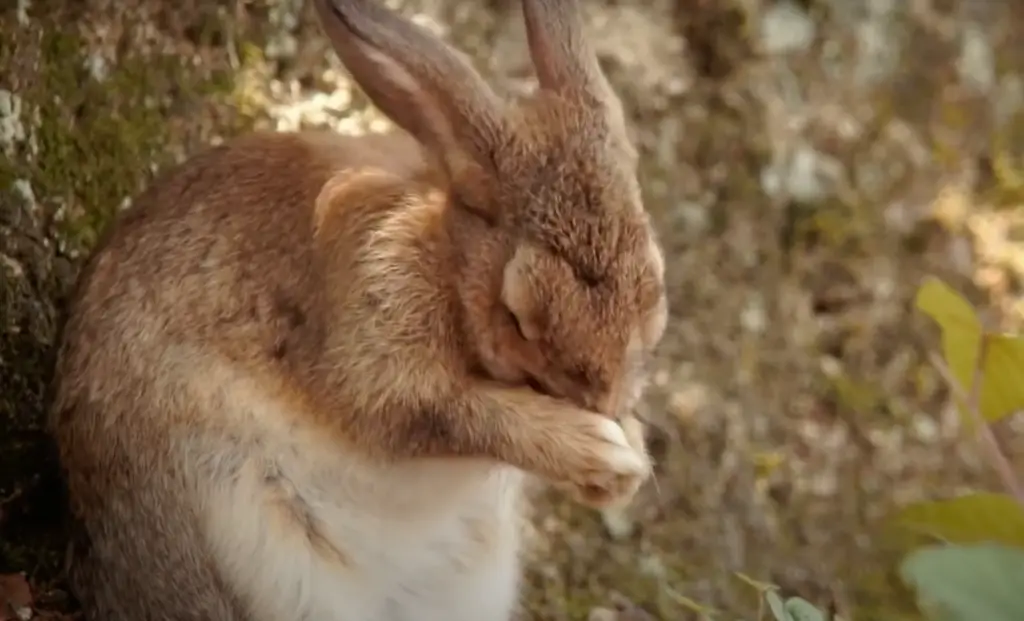
Finally, it is important to note that treats such as raisins, sunflower seeds, yogurt drops, and other sweets should only be given occasionally, as too much sugar can lead to obesity or other digestive issues. Treats should never make up more than 10-15 percent of a rabbit’s diet [1].
How to Tell if Rabbits Are Eating Plants in Your Garden?
One of the most common signs that rabbits are eating plants in your garden is damaged plants. Rabbits typically eat leaves and stems, but they may also nibble on flowers or fruit. Look for raggedy edges or large chunks taken out of the foliage. You can also look for small piles of rabbit droppings around the area, as they tend to leave pellets after feeding.
If you suspect rabbits are eating plants in your garden, try setting up a simple game camera to confirm the activity. It’s also helpful to understand what types of plants rabbits enjoy eating so you can focus on protecting those from damage. Some popular options include clover, lettuce, cabbage, kale, carrots, radishes, and alfalfa sprouts.
To protect your garden from rabbits, consider fencing in the area or constructing physical barriers to keep them out. You can also try using scent repellents or adding motion-activated lights and noise makers. Ultimately, the best way to protect your plants is by understanding rabbit behavior and taking the steps necessary to deter them from your garden. With a few simple precautions, you can enjoy a beautiful garden free of pesky pests [2]!
Pros and cons of eating Basil for Rabbits
Basil is an aromatic herb that can be a tasty treat for rabbits. It has many possible health benefits, but there are also some potential risks to consider before feeding this herb to your rabbit.
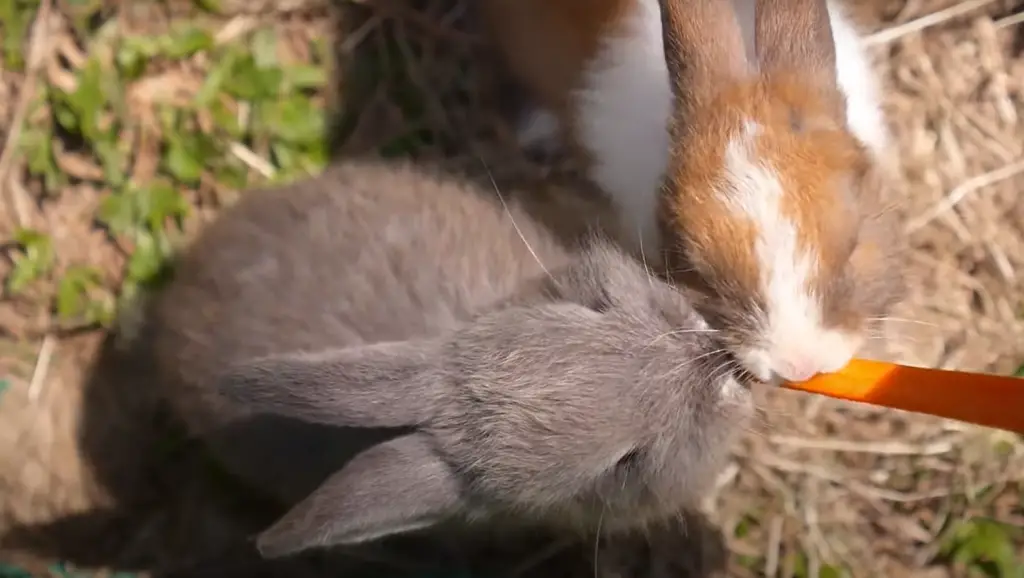
Pros of Eating Basil for Rabbits:
- It contains Vitamins A and C which help keep the immune system in check and healthy.
- Basil’s natural oils have antibacterial properties which may help fight off infections.
- These same oils have antifungal properties as well, which could help prevent or reduce fungal growth on the skin.
- Its high levels of antioxidants may protect against free radical damage in cells throughout the body.
- Studies suggest that basil may provide some protection against certain types of cancer.
Cons of Eating Basil for Rabbits:
- The high concentration of essential oils can be irritating to the stomach and digestive tract, causing diarrhea and other gastrointestinal problems.
- Some rabbits can be sensitive to the pungent smell and flavor of basil, which can lead to picky eating habits.
- Overindulging in this herb could lead to weight gain due to its high sugar content.
- If eaten in large amounts, basil may cause an upset stomach or vomiting in some rabbits.
- It’s important that you only feed your rabbit fresh basil as dried leaves contain less nutritional value and increased levels of cellulose which is difficult for rabbits to digest.
Overall, Basil is generally considered safe in moderation for a rabbit’s diet and can provide some nutritional benefits. It should be fed sparingly though, as too much could cause digestive upset or weight gain.
How to Keep Rabbits Away from Your Basil Plants?
Fencing
Fencing is one of the best ways to protect your basil plants from hungry rabbits. Use a fence that is at least two feet high and has small mesh openings to keep rabbits out.
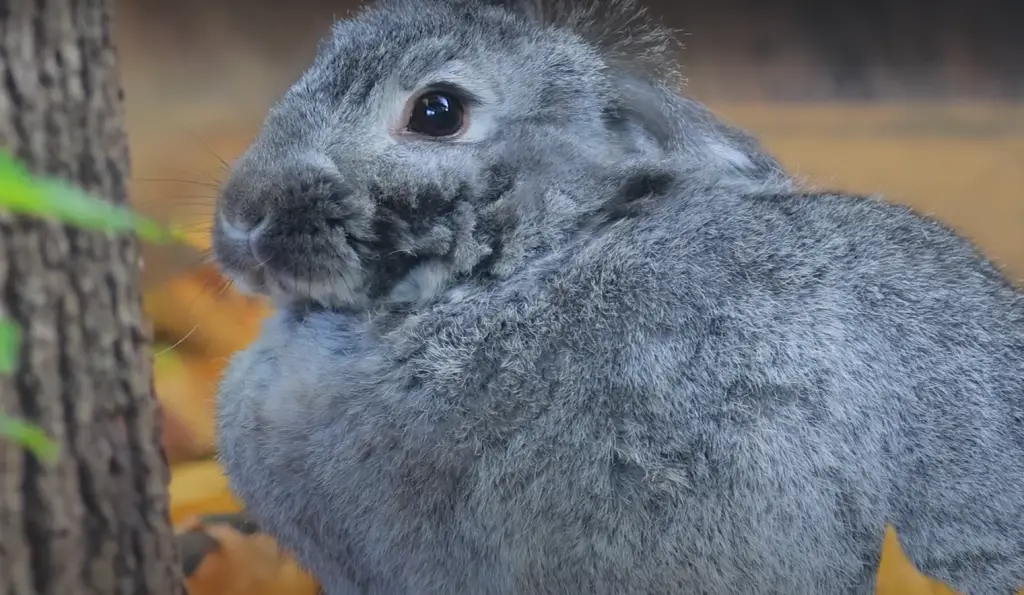
Chicken wire or hardware cloth are good materials for this purpose. Make sure the fence extends deep into the ground because some clever bunnies can dig their way under!
Planting Your Basil Plants Strategically
Rabbits tend to avoid certain types of plants. Planting your basil among these other plants can help protect it from rabbits. Garlic, onions, and chives are all good examples of plants that rabbits don’t like to eat.
Repellents
There are also commercial repellents available that can be used to keep rabbits away from your basil plants. Look for products made specifically for keeping rabbits away, as some general animal repellents may not be effective against them. Some popular rabbit repellents contain ingredients such as garlic oil or capsaicin (the active ingredient in chili peppers).
Motion Activated Sprinkler
Motion-activated sprinklers are a great way to scare rabbits away without doing any harm. When the device detects motion, it will release a short burst of water which startles the rabbit and encourages it to move on. These devices can be used both during the day and at night – just make sure to turn them off when you’re around as you don’t want to get soaked!
Companion Planting
Companion planting is another way to keep rabbits away from your basil plants. This technique involves planting certain plants that rabbits don’t like near your basil. Good choices include lavender, rosemary, sage, and garlic.
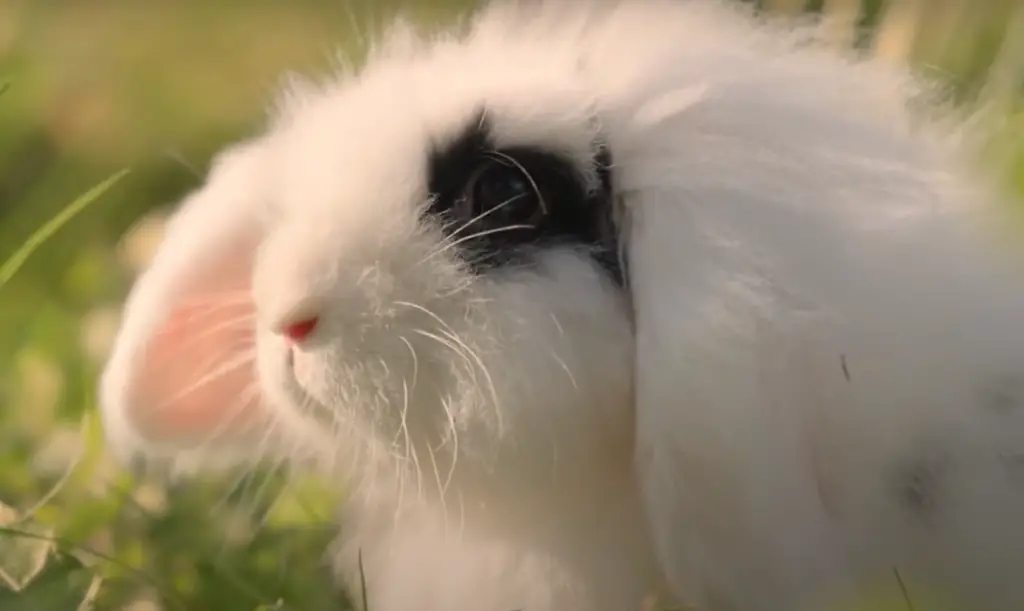
Not only do these help repel rabbits, but they also have other benefits such as attracting helpful insects and improving the soil quality.
Predator Scents
Predator scents can also be used to deter rabbits from your basil plants. These products contain the scent of a rabbit’s natural predators and can help convince them that they are in danger and should stay away. Some popular predator scents include coyote urine, fox urine, and bobcat urine. Just make sure you don’t spray them directly on your plants as this could damage the foliage.
Red Pepper Spray
You can also make your own rabbit repellent out of red pepper spray.
This spicy spray will deter rabbits without doing any harm to your plants.Decoy Garden
Creating a decoy garden is also an effective way to keep rabbits away from your basil. Plant some vegetables that rabbits like in a separate area of your yard and this will give them something else to snack on instead of your basil plants. This technique works best if the decoy garden is at least 50 feet away from where you’re growing your basil, as any closer and the rabbits may still be tempted to come over [3]!
How to maintain your garden?
Maintaining your garden can be an enjoyable and rewarding experience. Here are some tips on how to keep your garden looking healthy and thriving:
- Water regularly – Your plants need water to survive, so make sure they’re getting enough. Be careful not to overwater them, as this can cause root rot and other problems.
- Prune regularly – Pruning helps regulate the size of your plants, encourages new growth, and makes them look healthier. Make sure you prune correctly for each type of plant in order to get the best results.
- Use fertilizer – Fertilizer helps promote healthy growth for your plants by providing essential nutrients they may not receive from soil alone. Make sure you use the right type of fertilizer for each type of plant in your garden.
- Control weeds – Unwanted weeds can compete with your plants for resources like sunlight, water and nutrients, so make sure to control them by pulling them up or applying a herbicide if necessary.
- Combat pests – Pests, such as aphids and caterpillars, can damage your plants and cause disease, so be vigilant about checking for them and taking appropriate measures to combat them.
- Protect from extreme temperatures – Extreme temperatures can stress out your plants and cause permanent damage if left unchecked. Make sure to provide shade when it’s hot or cover the plants when there is a frost warning in your area.
FAQ
How do I keep my rabbit from eating basil?
Basil can be an attractive snack for rabbits, but there are ways to keep your rabbit from eating it. First, make sure your basil plants are kept out of reach of your rabbit – either by growing them in a pot or hanging them on a shelf. You can also create a physical barrier around the plant; some people find that using chicken wire works well.
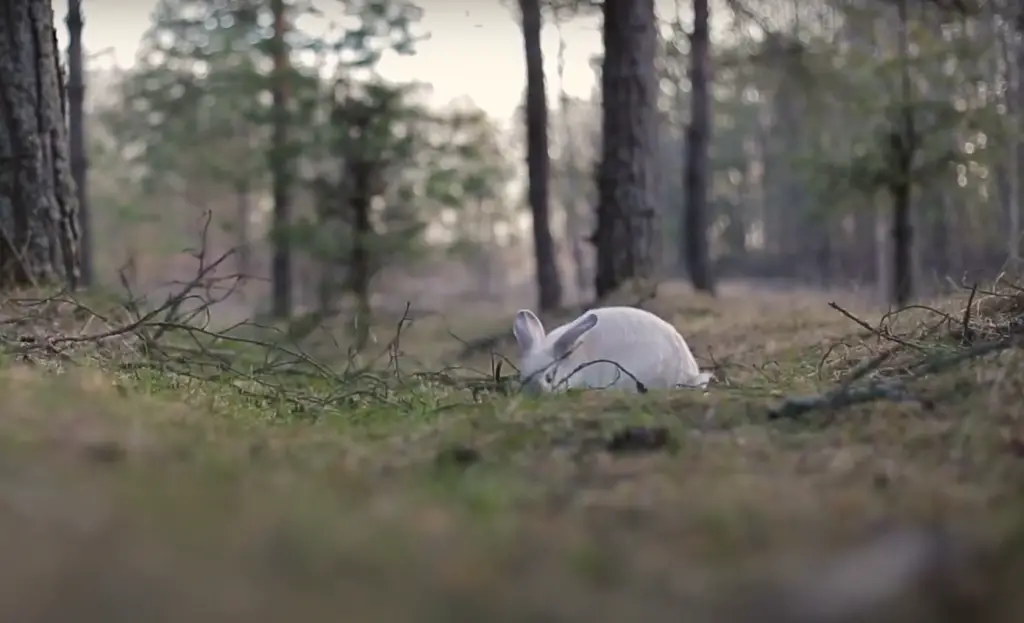
Finally, you can try spraying the plants with a bitter apple spray or even white vinegar as these have been known to deter rabbits from nibbling on the leaves. If all else fails, you can always grow your basil indoors where it will be out of reach of curious bunnies!
Can I give my rabbit fresh herbs?
Yes, many fresh herbs are safe for rabbits to consume and can even be beneficial to their health. Some of the most popular herbs include parsley, dill, cilantro, mint, thyme, and oregano.
You should also only offer small amounts at a time as consuming too much can cause tummy upset in some rabbits.What kind of vegetables can I feed my rabbit?
Vegetables make an excellent addition to a healthy diet for rabbits and there are lots of different types they can enjoy! Some good options include dark leafy greens like kale, spinach, collards, and Swiss chard; carrots and other root veggies such as beets and turnips; and some starchy vegetables like potatoes, sweet potatoes, and squash. Be sure to introduce any new veggies slowly to make sure your rabbit doesn’t have an adverse reaction and never give them any raw onions or garlic as these can be toxic for bunnies!
Can I feed my rabbit fruits?
Fruit can be a healthy treat for rabbits in moderation. Some safe options include apples (without seeds), bananas, strawberries, raspberries, blueberries, melon, papaya, and kiwi. As with all treats, it is best to give your bunny only small amounts of fruit at a time as too much sugar can cause digestive upset. Additionally, you should always check to make sure there are no seeds or pits in the fruits you give your rabbit as these can be dangerous if consumed.
Are hay and pellets enough for my rabbit’s diet?
No, hay and pellets should only form a portion of a well-balanced diet for rabbits. In addition to ample amounts of hay, rabbits need plenty of fresh vegetables, limited amounts of fruit and herbs, and occasional treats like nuts and seeds. It is also important to provide a source of calcium such as crushed eggshells or cuttlebone as this helps keep their bones healthy. By offering a variety of different foods, you can ensure your rabbit stays happy and healthy!
Do rabbits like the smell of basil?
Many rabbits have been known to be attracted to the smell of basil, so it may be wise to keep your plants away from their reach. If your rabbit has access to your basil plants, you may want to consider using a bitter apple spray or white vinegar as these can help deter them from nibbling on the leaves. Additionally, growing your basil indoors or in a pot will also help keep it out of reach of curious bunnies!
How does one get rid of rabbits in the garden naturally?
Most gardeners opt to use natural repellents such as predator urine, citrus oils, or hot pepper spray to help keep rabbits away from their gardens. You can also create a physical barrier like chicken wire around the perimeter of your garden, however, this may be difficult if you have large areas that need protection. Other options include growing plants that rabbits dislike the taste of (such as onions and garlic) and using motion-activated sprinklers – these will startle the rabbits when they come close and make them think twice about coming back! Finally, it’s important to keep your lawn trimmed short and remove any debris or hiding places that rabbits can use as cover. By taking these steps, you should be able to keep most bunny visitors away!
Do Rabbits like plants that smell?
Yes, rabbits do like plants that smell. Certain herbs and flowers, such as rosemary, lavender, and chamomile can attract a rabbit’s attention with their pleasant aroma. Other plants like marigolds have been known to repel rabbits due to their strong scent. It is important to research any plant you plan on putting in your garden before introducing them into your rabbit’s environment to ensure it is safe for them!
Do rabbits need vitamins?
In addition to providing a balanced diet of hay, vegetables, fruits, and occasional treats, there are also some vitamins and minerals that should be supplemented in your rabbit’s diet. Vitamin A helps maintain healthy skin and eyesight. B Vitamins help support healthy nerve and muscle function. Calcium helps keep their bones strong, while Vitamin C is important for supporting a healthy immune system. If you are unsure of the best supplement to give your rabbit, it’s always best to consult with your veterinarian!
Will rabbits eat your vegetable garden?
Yes, rabbits can be a nuisance if they find their way into your vegetable garden. To deter them, you can use natural repellents such as predator urine, citrus oils, or hot pepper spray. Additionally, it is important to remove any debris from the garden and keep your lawn trimmed short to remove hiding places for rabbits. You may also want to consider planting vegetables that rabbits don’t like such as onions and garlic to help keep them away! Finally, installing a fence around the perimeter of your garden is often the best way to protect it from curious bunnies!
Why is it important to provide a variety of foods for rabbits?
Providing a variety of different foods is important for keeping your rabbit happy and healthy. A balanced diet should include hay, fresh vegetables, fruits, and occasional treats. Hay is essential for keeping rabbits’ teeth and digestive systems healthy, while vegetables provide necessary vitamins and minerals. Fruits contain natural sugars that can make a tasty treat for your rabbit but should be given in moderation to avoid weight gain. Additionally, offering a variety of different foods also helps keep your rabbit stimulated and prevents them from getting bored with the same food every day!
Useful Video: PLANTS RABBITS CAN EAT🐰🌿 (Wild & Domestic Plant Types)
Conclusion
Do rabbits eat basil in the garden? The answer to this question depends on the type of rabbit and its environment. Some rabbits may enjoy munching on fresh basil leaves, whereas others prefer other types of greens or vegetables. In general, however, rabbits are herbivores and can safely enjoy eating basil if it is available in their garden. To keep rabbits away from other plants in the garden, it is important to provide a fence or barrier to keep them from getting into areas where they can cause damage. Rabbits are generally harmless and can make great pets, but taking the proper precautions when growing basil can help ensure that your garden thrives and you have plenty of fresh basil leaves for your rabbit to enjoy.
References:
- https://www.rspca.org.uk/adviceandwelfare/pets/rabbits/diet
- https://a-z-animals.com/blog/how-to-stop-rabbits-from-eating-your-plants-and-flowers/
- https://seedsandgrain.com/do-rabbits-eat-basil/





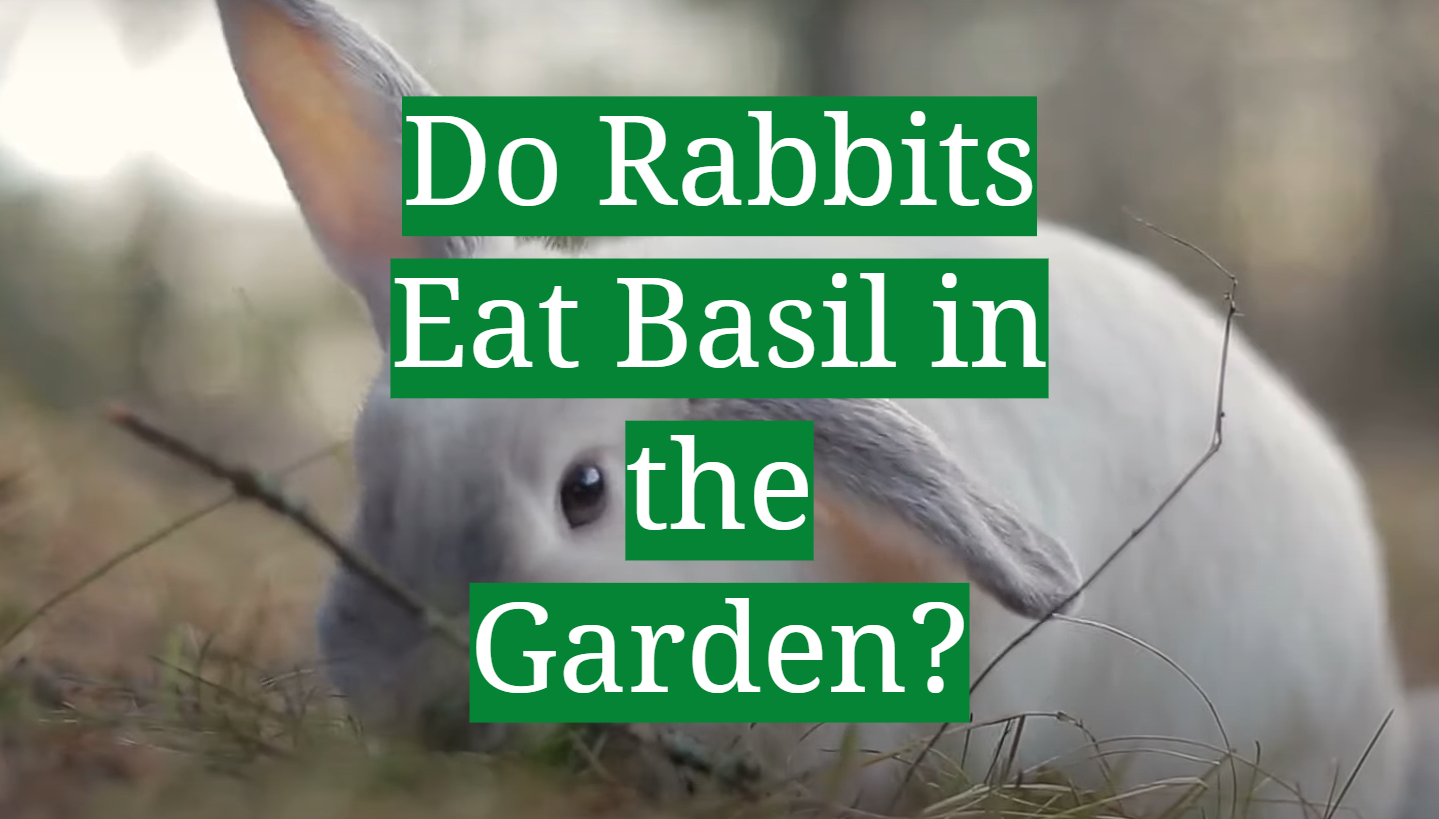
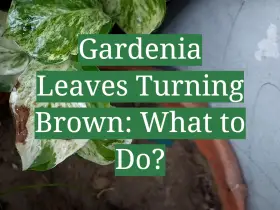
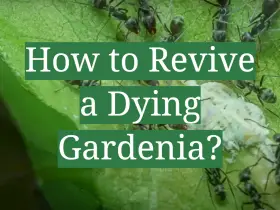
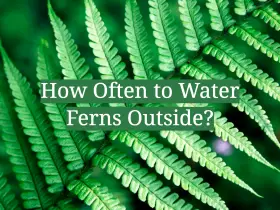
Leave a Reply
View Comments